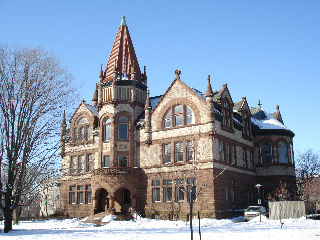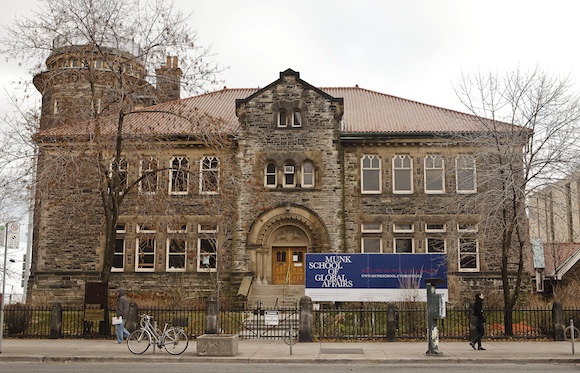httpv://www.youtube.com/watch?v=xq3a_7242Lc
“Sgt. MacKenzie” by Joseph Kilna MacKenzie
Here’s Frye in “Hart House Rededicated,” delivered on the fiftieth anniversary of the opening of Hart House, University of Toronto, November 11th, 1969. As often happens with Frye on public occasions, somehow everything comes together with a resonance that is immediately recognizable. In this instance, the elements are the anniversary of Hart House, Remembrance Day, and our hard won, and too easily lost, sense of community.
Since 1919, a memorial service at the tower, along with an editorial in the Varsity attacking its hypocrisy and crypto-militarism, has been an annual event of campus life. Certainly I would not myself participate in such a service if I thought that its purpose was to strengthen our wills to fight another war, instead of to fight against the coming of another war. That being understood, I think there is a place for the memorial service, apart from the personal reason that many students of mine have their names inscribed on the tower. It reminds us of something inescapable in the human situation. Man is a creature of communities, and communities enrich themselves by what they include: the university enriches itself by breaking down the middle-class fences and reaching out to less privileged social areas; the city enriches itself by the variety of ethnical groups it has taken in. But while communities enrich themselves by what they include, they define themselves by what they exclude. The more intensely a community feels its identity as a community, the more intensely it feels its difference from what is across its boundary. In a strong sense of community there is thus always an element that may become hostile and aggressive.
It is significant that our memorial service commemorates two wars, both fought against the same country. In all wars, including all revolutions, the enemy becomes an imaginary abstraction of evil. Some German who never heard of us becomes a “Hun”; some demonstrator who is really protesting against his mother becomes a “Communist”; some policeman with a wife and a family to support becomes a “fascist pig.” We know that we are lying when we do this sort of thing, but we say it is tactically necessary and go on doing it. But because it is lying, it cannot create or accomplish anything, and so all wars, including all revolutions, take us back to square one of frustrated aggression in which they began. (CW 7, 397)


